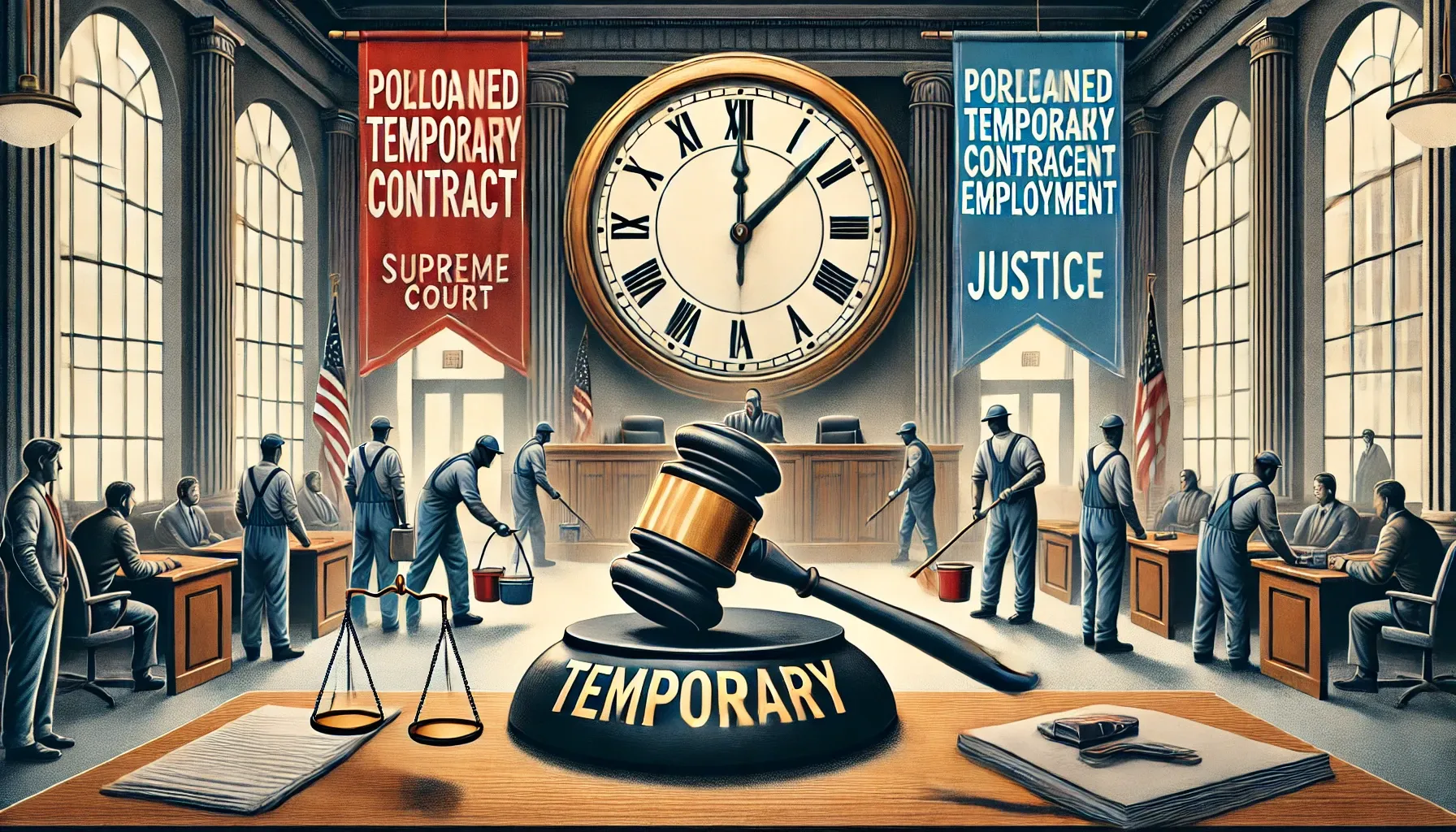The Supreme Court strongly criticizes government institutions for engaging workers on temporary contracts for prolonged periods, comparing such practices to exploitative trends in the gig economy and clarifying the Uma Devi judgment.

In a significant ruling, the Supreme Court of India condemned the misuse of temporary employment contracts by government institutions, likening it to exploitative practices prevalent in the gig economy. The Court emphasized that such actions infringe on workers' rights, undermine employee morale, and lead to unnecessary litigation.
The Judgment: Key Observations
- A bench comprising Justice Vikram Nath and Justice Prasanna B Varale stressed that public sector entities must act as role models by providing fair and stable employment.
- The Court remarked: “Engaging workers on a temporary basis for extended periods, especially when their roles are integral to the organization's functioning, not only contravenes international labour standards but also exposes the organization to legal challenges and undermines employee morale.”
- It directed the regularization of certain employees of the Central Water Commission (CWC), who had served on temporary contracts for 14-20 years.
Case Background: Temporary Workers in Central Water Commission
The appellants in this case were hired by the CWC as Safaiwala in 1998-99 and as Khallasi in 2004. Despite being labeled as "temporary" workers, they performed essential, full-time tasks for decades.
- In 2015, the workers approached the Central Administrative Tribunal (CAT) seeking regularization, but their plea was rejected.
- In 2018, following the CAT decision, the workers were terminated without prior notice.
- After the Delhi High Court also refused to intervene, the workers approached the Supreme Court.
Supreme Court’s Findings
- The Court noted that the appellants’ tasks were perennial and fundamental to the organization’s functioning, making their "temporary" status unjustifiable.
- The abrupt termination of their services without notice was deemed arbitrary and a violation of natural justice.
- The judgment emphasized that the nature of work, rather than the label of appointment, determines whether a position is regular or temporary.
- The outsourcing of these tasks to private agencies post-dismissal further underscored their essential nature.
Misinterpretation of the Uma Devi Judgment
The bench criticized the misapplication of the Uma Devi judgment (Secretary, State of Karnataka v. Uma Devi, 2006), which had laid down guidelines for regularizing employees in irregular appointments:
- The Uma Devi judgment aimed to prevent backdoor entries into public service but explicitly allowed regularization of employees who:
- Were engaged in sanctioned posts.
- Served continuously for more than ten years.
- The Court noted: “The laudable intent of the judgment is being subverted when institutions rely on its dicta to indiscriminately reject the claims of employees, even in cases where their appointments are not illegal but merely lack adherence to procedural formalities.”
- The selective application of Uma Devi distorts its purpose and weaponizes it against long-serving employees.
Parallels with the Gig Economy
The judgment drew comparisons between public sector practices and the gig economy, warning against setting dangerous precedents:
- The rise of precarious employment arrangements in the private sector has been criticized for denying benefits, job security, and fair treatment.
- The Court stated: “When public sector entities engage in misuse of temporary contracts, it mirrors the detrimental trends observed in the gig economy and sets a concerning precedent that erodes public trust.”
Court’s Directive
- The Court ordered the regularization of the appellants, noting their consistent performance over long tenures.
- It referenced the recent judgment in Vinod Kumar and Ors. Vs. Union of India, which held that procedural lapses cannot deny regularization to employees performing regular duties for extended periods.
Case Details: Jaggo v. Union of India





